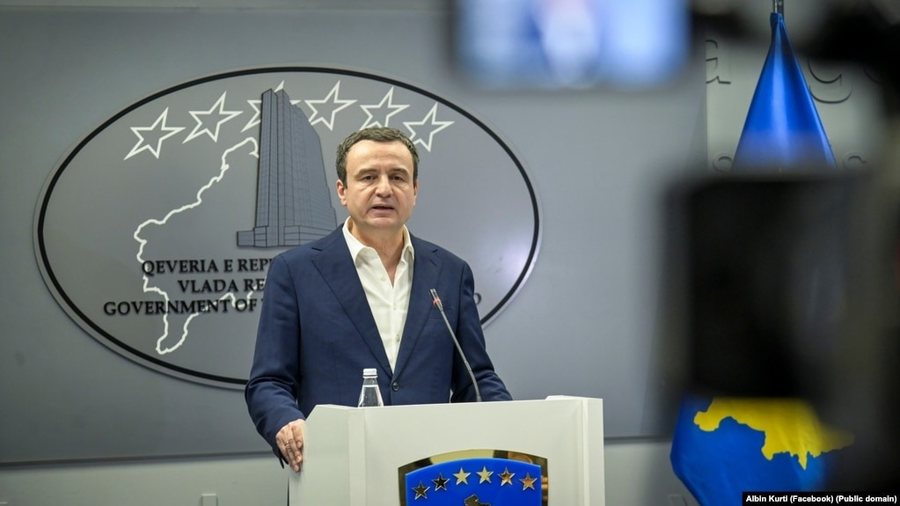
The Kosovo Security Council has accused Serbia of attempting to "sabotage the establishment of new institutions" and Kosovo's ninth legislature from the February 9 parliamentary elections.
The Kosovo government announced that the Kosovo Security Council held a meeting on April 6 at the request of the acting Prime Minister, Albin Kurti, to discuss the security situation, but also, as stated, Serbia's destabilizing plans.
The announcement reiterated earlier accusations made by the Kosovo Government that Serbia interfered in the February 9 parliamentary elections through the Serbian List – accusations that have also been made by Germany and the European Union election monitoring mission.
"Serbia is now interfering with some of the MPs from non-majority and non-Serb communities, in order to sabotage the establishment of the new institutions of the ninth legislature. With threats and enticements, and especially with blackmail, it is trying to incite interethnic and inter-party tensions in Kosovo and destabilize Kosovo," the statement issued by Kurti's Office said, without mentioning which MPs are in question and which communities they are from.
The Security Council said this constitutes an interference with "state sovereignty, the democratic functioning and the institutional integrity of our country."
Kurti, whose party, the Vetevendosje Movement, won the February 9 elections, earlier this week held meetings with non-majority community parties in Kosovo, with whom he discussed the constitution of the Assembly and the formation of the Government.
On April 2, Kurti met with the leader of the Bosniak New Democratic Party, Emilija Rexhepi, and the leader of the Serb Party for Freedom, Justice and Survival, Nenad Rashic. Both expressed their willingness to continue cooperation with Kurti's LVV.
A day later, Kurti continued his meetings with representatives of other non-Serb parties. He met with the leader of the Bosniak Social Democratic Union, Duda Balje, the leader of the Egyptian Liberal Party, Veton Berisha, the leader of the Turkish Democratic Party of Kosovo, Fikrim Damka, and the leader of the United Roma Party of Kosovo, Albert Kinolli.
That same day, Kurti also met with the elected MP from the Gorani community, the Chairman of the Gorani United Party, Adem Hoxha, as well as the elected MP from the Bosniak community, Rasim Demiri from the Vakat Coalition.
Hoxha was previously part of the Parliamentary Group of the Serbian List, the main Serb party in Kosovo, which won nine seats in the Kosovo Assembly in the February 9 elections.
After the meetings, Balje, Berisha and Kinolli said that they have presented their requests to Kurti for a possible cooperation with LVV. Damka expressed his willingness to continue the cooperation, while Hoxha's position regarding a possible cooperation with Kurti's party is unknown.
The LVV – which has 48 seats in the Assembly, insufficient to form the executive on its own – has said it wants to form a government with parties from non-Serb minority communities.
Non-majority communities have 20 seats in the Assembly, ten are reserved for non-Serb parties and ten for the Serb community.
In addition to the issue of institution formation, according to the announcement, the Security Council also discussed the hand grenade attack on the Kosovo Post Office in Zvecan on April 1, as well as the arrest on Saturday night of "four Serbian 'pilgrims' in Gjakova".
According to the Council, one of them was a lieutenant in the Serbian police and the other a captain in the Serbian army.
Meanwhile, the police, in their 24-hour report, said that they arrested four suspects in Gjakova on April 5, after two knives and an axe were found and seized during a search of the trunk of their car with Serbian license plates. /REL (A2 Televizion)











